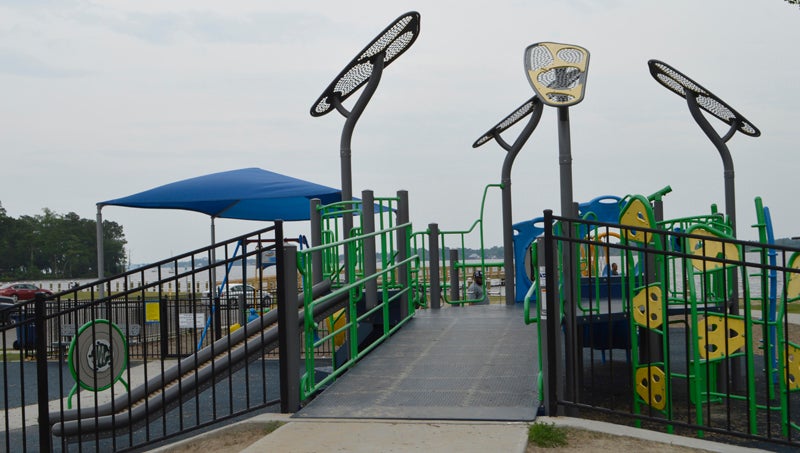Studies, older generations say ‘go outside and play’
Published 7:30 pm Friday, June 28, 2019
By MARISSA WOOLARD
For the Washington Daily News
The phrase “go outside and play” isn’t used as much today, especially for younger generations.
Though summer is made for outdoor adventure, many children don’t take advantage of it, preferring to stay inside and socialize with friends online or on their phones. More than two-thirds of young people say they would rather communicate with their friends online than in person, according to a study by Common Sense Media, a company that makes entertainment and technology recommendations for families and schools.
The statistic points out a gap between generations.
Washington residents Ronnie and Dianna Woolard, parents of two teenagers, believe younger generations’ access to technology is the reason why kids aren’t spending much time in nature.
“Younger generations, all they know is technology. They have grown up with it,” Dianna Woolard said, adding that older generations generally only use technology and cell phones for scheduling and keeping in contact with family.
For Ronnie Woolard, technology is no substitute for getting outside.
“It’s laziness. If no one had cell phones then everyone would have to work to find something or figure something out,” Ronnie Woolard said. “In our generation, kids played outside with their friends — they hardly stayed inside. Technology is an electronic babysitter for younger generations. Even toddlers have an iPad that’s entertaining them.”
The difference between now and then could have short- and long-term effects on mood, and physical and mental health, according to researchers.
A study from the University of Rochester found that spending time outside in green, natural environments can boost physical and mental energy by nearly 40%. Sunlight is also needed to increase the levels of serotonin in one’s body; low levels of serotonin are linked to mood swings. In another 2014 study by the University of Michigan, researchers found that group nature walks were associated with significantly lower depression, less perceived stress and enhanced mental well-being.
However, many young people don’t necessarily believe that staying inside has an effect on their overall health.
Ronnie and Dianna Woolards’ son, Alex, 17, said he doesn’t think too much about the effects of not spending time outdoors or not getting physical exercise. He said he thinks a lack of outdoor activity doesn’t necessarily cause a decline in physical fitness, and if he wants to go outside, the option is there.
“I am just so focused on school that sometimes I can’t get outdoors, and I usually just play video games instead since it’s easier and a way to talk to my friends,” Alex Woolard said. “Young people make more connections on social media and other outlets than in person. Some people may feel more comfortable online.”
Like many other teenage boys, he plays a lot of video games with his friends, but he also spends time with his friends outside of gaming.
“I hang out with my friends a lot, but school usually takes up a lot of my time so playing video games is a way to interact with my friends when I can’t physically be somewhere,” Alex Woolard said.
On the other hand, there’s Bethany Waters, a rising junior at Beaufort County Early College, who grew up in a family that enjoys camping and bonfires, and spending a lot of time outside when extended family comes to visit. Waters has been riding horses for about four years, and when she goes to the stables, at least once a week during the school year, and much more often during the summer, she is outdoors all day — riding horses, working around the barn, cleaning buckets, sweeping, feeding and watering animals and other activities.
“I go the stables because it’s something I really enjoy, and I love working with horses,” Waters said.
Waters said she believes being outdoors is good for one’s health, which is why she spends plenty of time outside.
“I think that being outside is definitely beneficial for anyone’s mental health. Being inside all the time can probably get kind of lonely,” Waters said.






